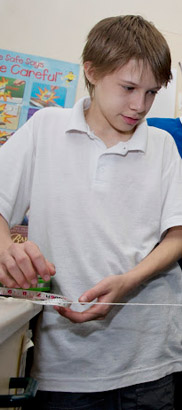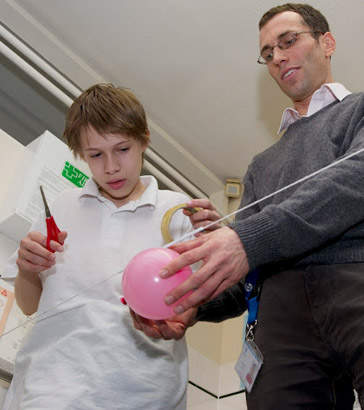

Objectives summarise predicted or anticipated learning
but they do not necessarily tell us anything about what pupils will actually be able to do as a result of their learning.
They leave open the question of how it will be possible to tell if a pupil has learned anything – and discovering what
a pupil knows, understands and/or can do is the key task in assessment.
Byers and Rose, 2004
A distinction must be made between outcomes for learning and assessment opportunities. Understanding the difference between the two will have a major impact on planning.

Have a look at this pen portrait of Lucy, a pupil who has achieved National Curriculum Level 1.
(Note that the Specific Pupil Learning Outcomes were informed by an assessment tool - B Squared - rather than the content and the activities described in the lesson plan.)
A science lesson (1)
In the first of these two videos a science teacher describes how he differentiates his lessons to meet the needs of pupils in his class. In the second video he explains the importance of practical activities for pupils with learning difficulties.
-
 Differentiating lessons5:14
Differentiating lessons5:14 -
 Practical activities3:59
Practical activities3:59
A science lesson (2)
The teacher's short-term plan is to build on pupils' demonstrable understanding of how to move an object through space and the principles of a fair test. What would he need to achieve this?
You will notice that within this class there are two distinct groups for whom the teacher needs to plan accordingly.
What strategies does the teacher employ (and why) to assess the progress made by pupils within the lesson?
-
 Differentiation in science lessons5:14
Differentiation in science lessons5:14 -
 Keeping pupils engaged in lessons3:59
Keeping pupils engaged in lessons3:59

Richard Byers and Richard Rose. Planning the curriculum for pupils with special educational needs. A practical guide. David Fulton Publ. 2004.